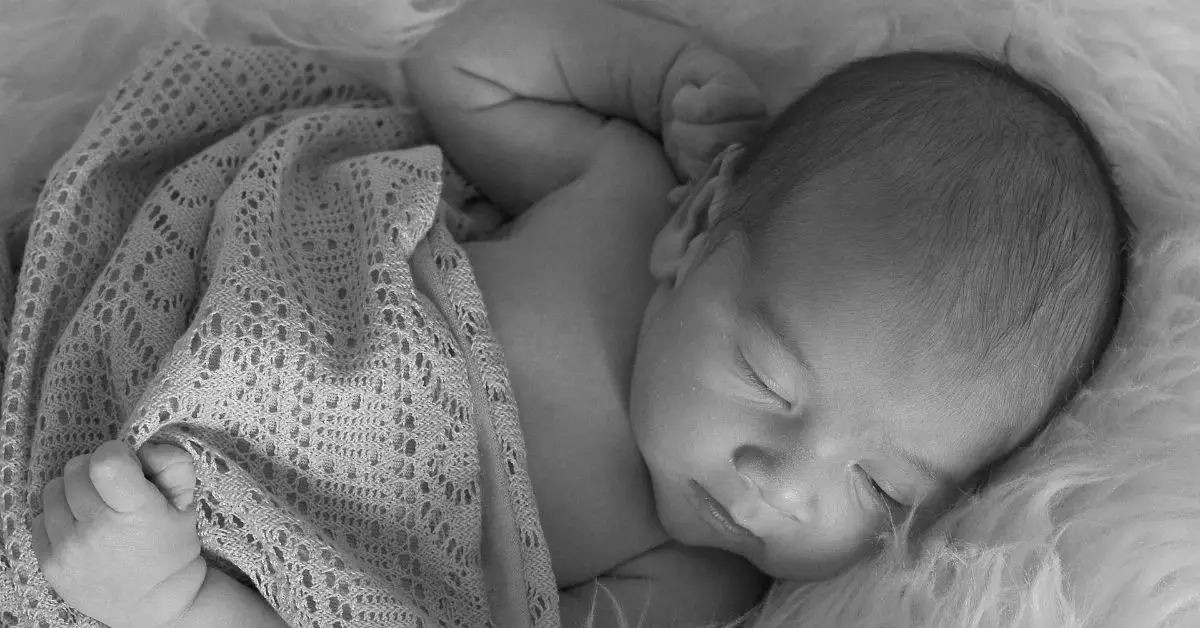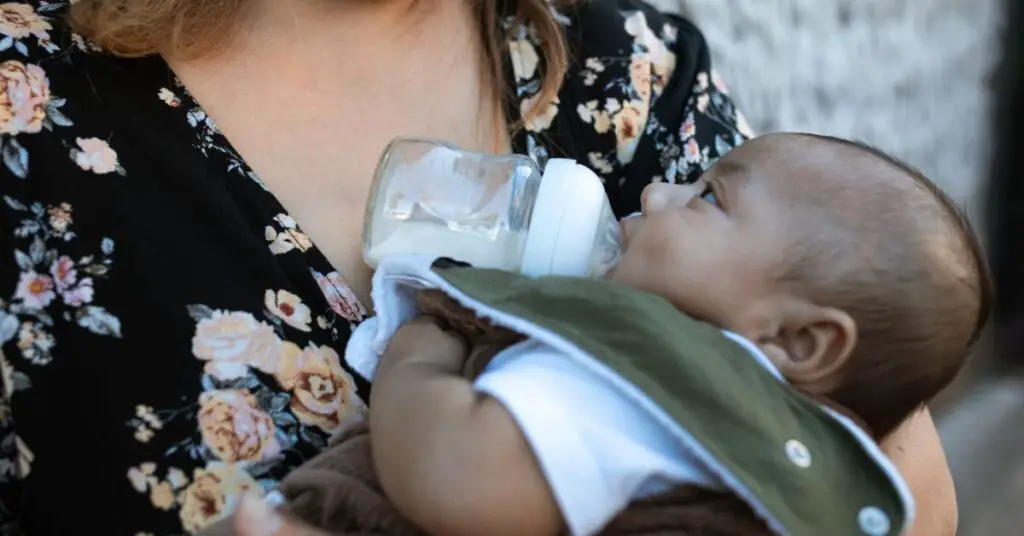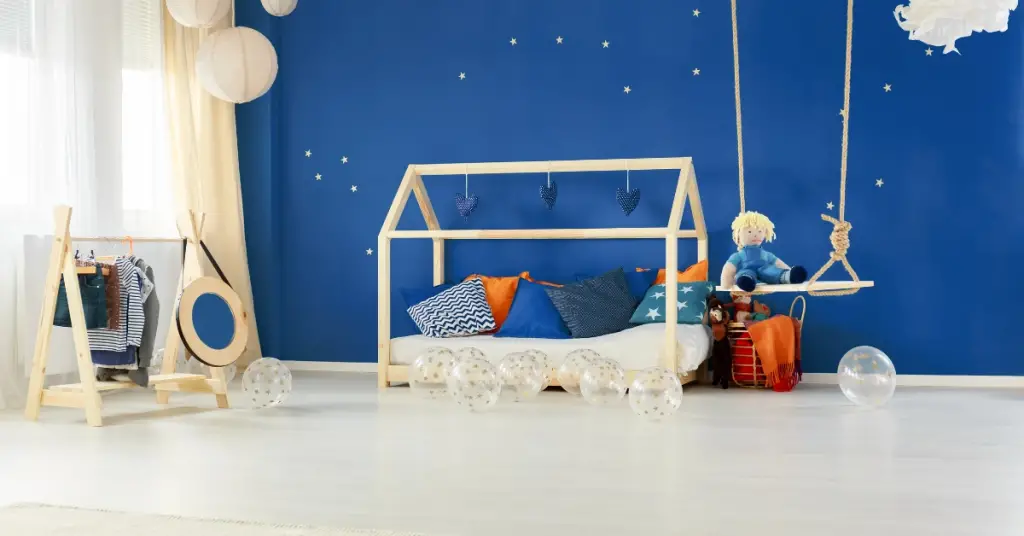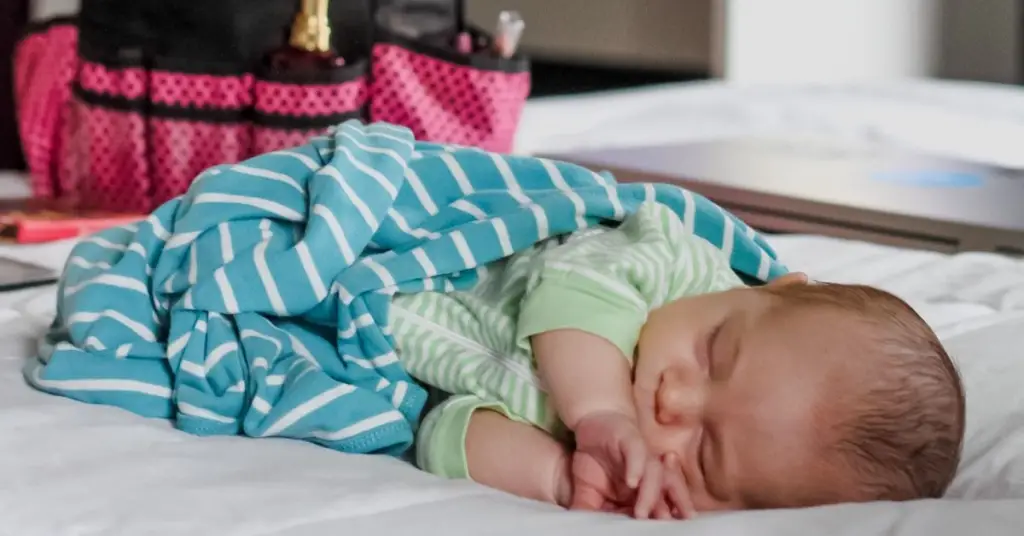Wondering if you should keep the light on or turn it off at night when your baby sleeps? This article will tell you everything you need to know about how and why babies sleep better in the dark.
The products mentioned on this page were independently selected by Babycious editors. As an Amazon Associate, Babycious may earn a commission from qualifying purchases.

Image by melissajuarez0 from Pixabay
There’s an age-old debate among parents about whether babies sleep better in the dark or with a light on. Some people swear by leaving a light on so their baby can see, while others believe that complete darkness is key to a good night’s sleep. So, which is it? Does baby sleep better in the dark?
The answer may surprise you. For the first few months of your baby’s life, it doesn’t actually matter if they sleep in a darkened room or not. Sleeping in the dark only becomes important at around three months old, when your baby starts making the hormone melatonin which helps them develop a day-night rhythm. That is when you want to start making your baby’s room as dark as you can during the night and as light as you can during the day.
I always tried to make my baby’s room as dark as possible during the night when she was little. I believed that it was key to a good night’s sleep. And it seemed to work – but then there was this once while we were traveling when she was about six weeks old, and I had no way to get the hotel room we were staying in to be as dark as usual. To my surprise, it made no difference whatsoever in her sleep that night, so I realized that I had been worrying about nothing. We then waited until she turned three months old to start implementing the “dark at night and bright during the day” strategy, and it worked great for us because it allowed us to go about our day-to-day lives without having to worry about complete darkness all the time.
The “Dark at Night and Bright During the Day” Strategy
The science behind the “dark at night and bright during the day” strategy has to do with the production of the hormone melatonin. Melatonin is produced in response to darkness, and it helps to regulate our sleep-wake cycle. When there is less light, our bodies produce more melatonin, which makes us feel drowsy and helps us sleep better at night.
In babies, the hormone melatonin starts being produced at around three months old. That is when you want to start setting up healthy sleeping habits for your baby. Making your baby’s room as dark as you can during the night and as light as you can during the day will help your baby establish their circadian rhythm which is important for their overall health and development.
Related: 13 Tips to Survive the Four Month Sleep Regression
Keeping a nightlight beside your baby’s crib might seem like a good idea, but it’s actually not. Nightlights, when left on all night long, can suppress the production of melatonin and disrupt your baby’s sleep. If you want to use a nightlight, make sure you only turn it on when you need to go into your baby’s room for a feeding or a diaper change, or you can get a motion-sensing nightlight that will turn on automatically when you enter your baby’s room.
On the other hand, you want to let your baby nap during the day in a bright room (with no blackout curtains). That is what our pediatrician recommended and is confirmed by research. Napping in a bright room or a room that is just dim helps your baby differentiate day from night. It also makes your baby grow to be less picky about napping conditions and be a better napper in all kinds of situations, especially during travels.
So, apart from the hormone melatonin production what is it about darkness that makes (older) babies sleep better?
Babies Are Not Afraid of The Dark!
A lot of people think that babies are afraid of the dark, but that is not true. In fact, babies sleep better in the dark and find comfort in a dark room as it reminds them of their time in the womb. They have spent their entire lives in a dark (and noisy) setup, so it only makes sense that they would feel more comfortable and safe in a dark room.
Another reason why newborn babies sleep better in the dark is that they are not yet able to focus their eyesight. So, when there is less light, they are not distracted by their surroundings and can focus on sleeping better. As your baby grows older, they will be able to focus their eyesight and become more aware of their surroundings. That is why it is important to start implementing the “dark at night and bright during the day” strategy as early as possible, so that your baby can develop healthy sleep habits.
So the idea of keeping a nightlight on beside your baby’s crib is not only outdated but also counterproductive. If you want your baby to sleep better at night, make sure their room is as dark as possible. And rest assured that the dark will definitely not scare your baby, in fact, it will provide them with the comfort and security they need to sleep soundly through the night.
Bottom Line
So, to sum it up, yes, babies do sleep better in the dark – but only after they are three months old. At that point, they should be sleeping in a bright room during the day and a darkened room at night so that they can establish their circadian rhythm. Nightlights, while they might seem like a good idea, can actually disrupt your baby’s sleep by suppressing the production of melatonin.
Have you tried implementing the “dark at night, bright during the day” strategy with your baby? Let us know how it went in the comments below!
The purpose of this article is informative and educational only. It’s not a substitute for medical consultation or medical care. We do not accept any responsibility for any liability, loss, or risk, personal or otherwise, incurred as a consequence, directly or indirectly, from any information or advice contained here. Babycious may earn compensation from affiliate links in this content.



